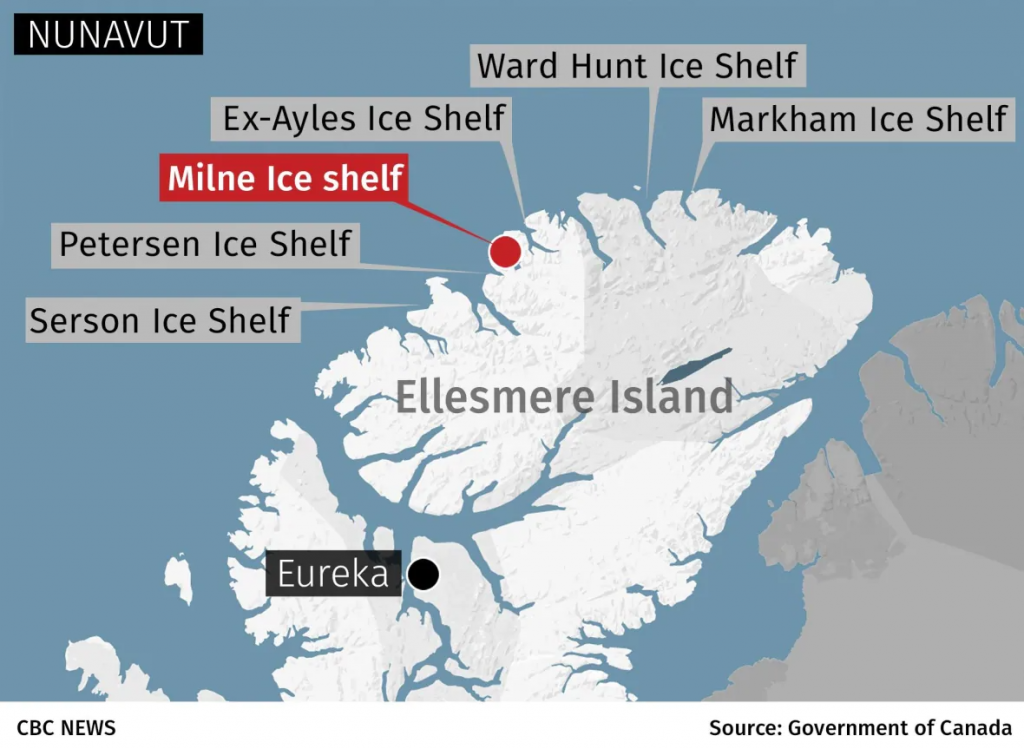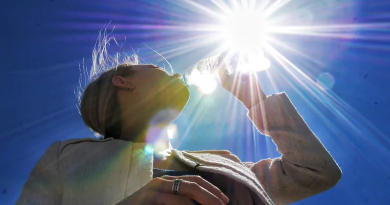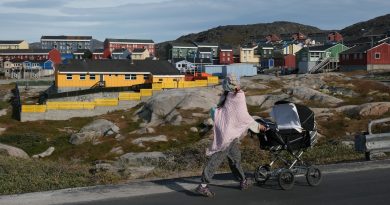Canadian Ice Service tracking icebergs in western Arctic for 1st time

Beacons were dropped from an airplane onto icebergs last week
The Canadian Ice Service is tracking icebergs to monitor and predict drifting patterns in the western Arctic for the first time, according to one of its ice analysts.
Last week, the organization — a branch of Environment and Climate Change Canada (ECCC) – dropped beacons from a Hercules aircraft onto icebergs in the Beaufort Sea.
Adrienne White, an ice analyst with the Canadian Ice Service, said that while it is common practice to track icebergs in the eastern Arctic, they have never before deployed sensors in this area.
Increase in floating icebergs
The icebergs being monitored are castaways from the Milne ice shelf on the northwest coast of Ellesmere Island – an area that was historically permanently covered in ice.
Over the past century Ellesmere Island has begun to break up, explained White, and that process has accelerated within the last decade.
The warming climate has caused an increase in floating icebergs breaking off of stable structures, as well as more open water along the northern coastline.
“We’re having a lot more change to these large floating ice structures that are no longer stable in our current climate,” White said, adding that it could mean risk for ships or coastal communities nearby.
By dropping beacons, White said she and her colleagues at ECCC will be able to monitor the drifting ice.
Data over two years
The sensor data will provide updates on the icebergs’ coordinates every hour for the next two years.
White said her colleagues are also deploying a different kind of sensor into the Beaufort Sea to record air temperatures, sea surface temperatures and pressure.
That meteorological data is used in global climate modelling to forecast weather worldwide.
– With files from Peter Sheldon and Wanda McLeod
Related stories from around the North:
Canada: Arctic climate change among priorities of Canada’s new Governor General, Eye on the Arctic
Finland: Finland’s July temperatures in Lapland one to three degrees above average, Yle News
Greenland: UN sounds clarion call over ‘irreversible’ climate impacts by humans, Thomson Reuters
Norway: Polar bears face extinction in Svalbard and Arctic Russia says scientist, The Independent Barents Observer
Russia: Extreme fire activity continues in Yakutia, Russia, Eye on the Arctic
Sweden: Sweden’s environment and climate minister responds to UN climate report, Radio Sweden
United States: Alaska’s Northwest Arctic Borough gets $2 million tribal energy grant, Alaska Public Media



